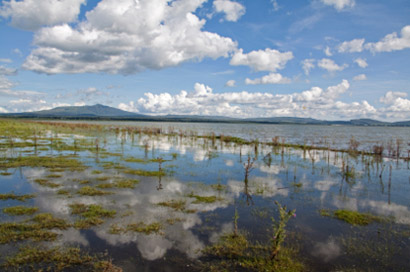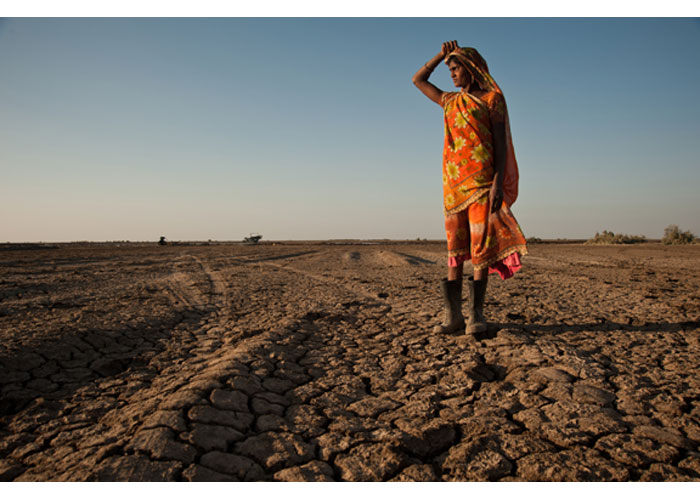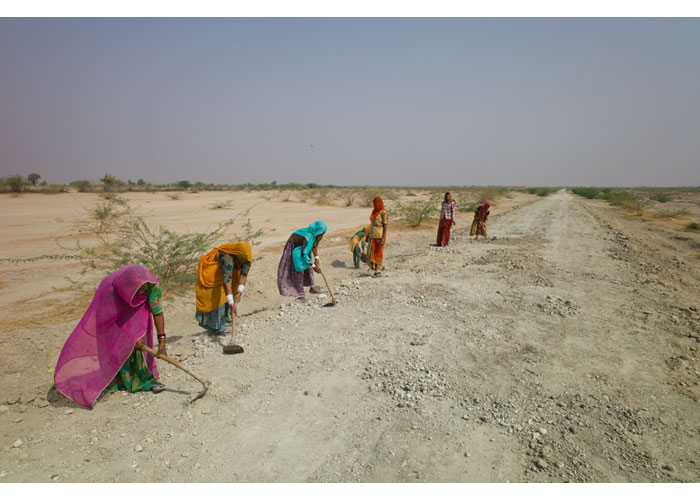Businesses’ Role in Mitigating Climate Change Effects
Climate change is bringing unprecedented risks for business. The effects have become so destabilizing and potentially severe that the issue has risen to the top of many business agendas. Water scarcity, energy insecurity and political and social instability are among the major climate-related concerns. The climate-related challenges faced by businesses present a complex mix of challenges. If businesses are going to seize new opportunities (or even stay viable), they need to adapt to a changing world. Equally important, they must do their part to help mitigate and manage climate change. Indeed, in a series of reports published by Lloyd’s – on global water scarcity, sustainable energy security and the Arctic – it becomes clear that business-as-usual is no longer an option.
With their geographic reach, capital and resources, businesses have the ability to become problem-solvers, innovators and collaborators. In its research, Lloyd’s has identified four key actions businesses can take to help achieve and promote sustainability. They include:
Promoting Research & Knowledge-Sharing
The study of climate change and its impact is developing, but further research is required. Governments, research institutes, non-governmental organizations and businesses can help close these knowledge gaps to help reduce risk and ensure future development takes place sustainably and does not cause irreparable damage. Since climate change is a global issue, international collaboration in research is critical.
Establishing Cross-Border Agreements
Combating climate change requires establishment of worldwide agreements and joint approaches. Lack of global climate regulations not only creates uncertainty for business, particularly when it comes to investments, it’s impossible to combat climate change on a piecemeal basis.
In response, a number of organizations are developing tools and measurement strategies to help companies understand and manage their impact on resources and the environment.
Water use is one area where measurement and standards are critical. Rising temperatures and erratic weather patterns caused by climate change, for example, will lead to more frequent and serious droughts, exacerbating water-scarcity. Insufficient water supply could result in drastic food shortages and soaring prices, causing social upheaval and leading to migrations of people between affected and unaffected regions.
Companies are looking much more seriously at methods to map the water footprint of their operations and supply chains, and forums for the development of water stewardship standards, potentially leading to some kind of certification (such as that being developed by the Alliance for Water Stewardship) are starting to appear.
Developing Partnerships
Managing natural resources is a collaborative effort. Sixty percent of the world’s freshwater resources lie in rivers, lakes and aquifers that are shared by different countries. Countries, regions and companies, beginning at the local level, must jointly manage and share this precious resource focusing on equitable, efficient and sustainable solutions. Companies are an integral link in this process.

© iStockphoto.com/WLDavies |Falling water levels have created marshland around Lake Naivasha in the Kenyan rift valley.
Flamingo Flower Holdings, for instance, has been working through the local water user association in Lake Naivasha in Kenya to improve river basin management of water resources. In South Africa, SABMiller has provided funding and support to the Polokwane Municipality to improve reliability and quality of supply from its water treatment plant.
Local water management is essential, but there is an equal need for businesses to engage with national governments and to participate in international collaborations, including global corporate initiatives.
These initiatives provide platforms for largely multinational corporations to share emerging practices, agree on common approaches and engage with multi-lateral organizations, governments and international NGOs. The World Economic Forum (WEF) Water Initiative, for example, has moved this agenda forward by helping to create country partnerships and is currently attempting to create a facility that will support corporate-government engagement on water issues.
Technology & Development
Technology, such as energy efficiency, green power generation, and water conservation and treatment advances, will play an important role in mitigating the worst effects of climate change. Considerable business opportunities for companies willing to invest in the development of emerging technologies, alternative and renewable energy sources. The financial sector is instrumental in providing investment.
When capital is in short supply, innovative financing techniques will be at a premium. In its report, Climate Change and Security, Lloyd’s notes the insurance industry has already stepped in to help facilitate the flow of capital. Insurance companies now offer close to 650 climate change-related products, according to Ceres, an organization working to address sustainability challenges. Products include coverage for renewable energy developers in the event of their products generating lower than predicted levels of energy – thus making it easier for them to raise financing for such projects.
In addition to development, businesses will also play a role in making technology available where it’s needed. Those that succeed in implementing the most efficient, low-carbon, cost-effective energy systems can export their skills and technology. They may, for example, agree to a free transfer of technology that will help developing countries modernize in environmentally friendly ways.
Businesses have had a role in creating climate change and they have an equally strong responsibility to help mitigate and adapt to its effects both for their own survival and that of the planet. This is not just good stewardship; it’s also good business.





























